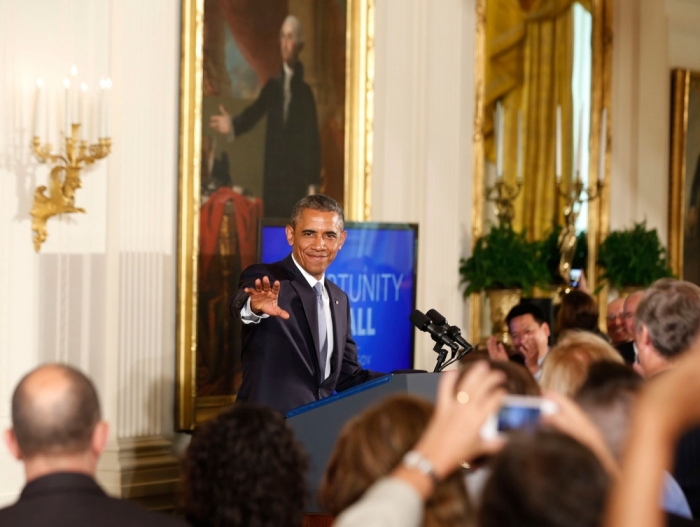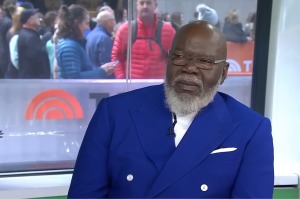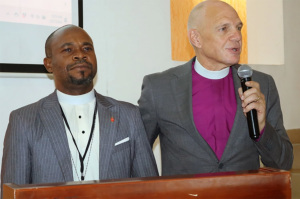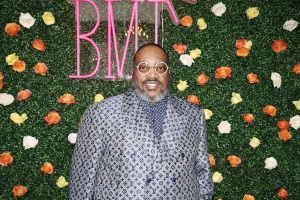Are Religious Groups Exempt in Final LGBT Federal Contractor Rule?

Two concerns were raised this week in the battle to allow religious groups to maintain their religious identity when partnering with government to provide social services.
The Department of Labor released the final regulations for President Barack Obama's nondiscrimination executive order for federal contractors, and a bill may soon be passed during the U.S. Senate's lame duck session that does not contain religious exemptions for faith-based groups that receive government grants to aid homeless and runaway youth.
Federal Contractors
Obama announced in July that there would be no exemption for religious groups in a new nondiscrimination rule for federal contractors, but he would leave in place a President George W. Bush executive order on religious hiring which says religious groups with federal contracts are allowed to only hire co-religionists.
Obama's position was seen as a compromise between LGBT groups that thought religious groups should not be able to discriminate in hiring based upon sexual behaviors and religious freedom advocates who wanted a blanket exemption for faith-based groups.
Obama's attempt at a middle position, however, also led to a lack of clarity. What happens when the religious hiring exemption conflicts with the nondiscrimination clause? For instance, what if a religious organization requires its employees to abide by sexual ethics consistent with its faith, and those sexual ethics include a ban on same gender sexual relations? The Labor Department did not clarify this question when it made public the final regulations on Wednesday.
The new regulation adds "sexual orientation" and "gender identity" to the categories but does not mention religious groups. There is a section on "religious entities" on the Labor Department's FAQ's page regarding the new rule, but that page also lacks clarity. The page notes that the Bush era religious hiring exemption is still in place and the U.S. Supreme Court requires a "ministerial exemption" from nondiscrimination laws. It does not answer, however, whether a religious organization that believes homosexual practice is a sin would be allowed to deny employment or fire someone in a same-gender sexual relationship.
The lack of clarity itself could influence the role of religious groups in providing important social services, noted the Institutional Religious Freedom Alliance in a email to supporters.
"Many faith-based organizations may consider themselves no longer welcome in federal contracting, or will fear intrusive (and disruptive and expensive) inquiries by federal officials into their human resources policies and practices, even if in the end they are vindicated," IRFA wrote.
As The Christian Post reported in October, the rule was issued without public comment.
On the Q&A page, the Labor Department said it was allowed to issue the rule without prior notice or comment because, "President Obama's Executive Order was very clear about the steps the Department of Labor was required to take, and left no discretion regarding how to proceed. In such cases, principles of administrative law allow an agency to publish final rules without prior notice and comment when the agency only makes a required change to conform a regulation to the enabling authority, and does not have any discretion in doing so."
Runaway Youth Bill
The new LGBT rule came the same week that the U.S. Senate is poised to pass a funding bill that similarly contains a broad nondiscrimination clause with no religious exemption.
The Runaway and Homeless Youth and Trafficking Prevention Act, S. 2646, reauthorizes funding for government programs to help young runaways, homeless and human trafficking victims.
The language of the nondiscrimination clause currently in that bill is the same language that was added by the U.S. Justice Department to the reauthorized Violence Against Women Reauthorization Act in June.
Like Obama's order for federal contractors, "sexual orientation" and "gender identity" are added to the categories that may not be discriminated against. Religious groups are covered under the religious hiring exemption but there is no blanket exemption for religious groups.
An April 9 Justice Department memo about the new VAWA nondiscrimination language made clear that it applied to employees of grant recipients, not just beneficiaries, or those who are served by the grant recipients.
The memo stated that faith-based organizations "may prefer co-religionists," but, like the new rule for federal contractors, did not state what would happen if the faith-based organization's preference for co-religionists conflicts with the sexual orientation nondiscrimination rule.
Could a married gay man, for instance, sue if he were fired or not hired because his relationship is in violation of his faith-based employer's code of ethics? The Obama administration has consistently stated those situations would be dealt with on a case by case basis.





























